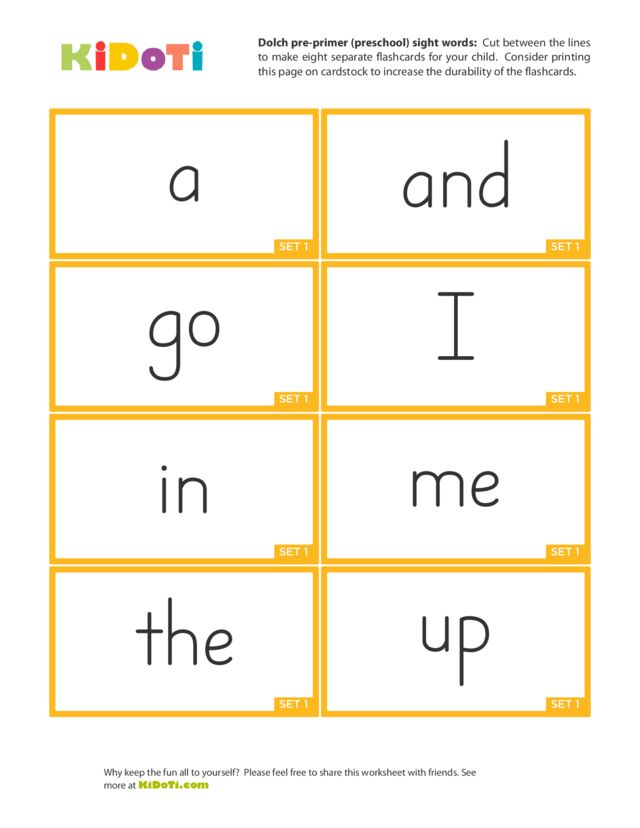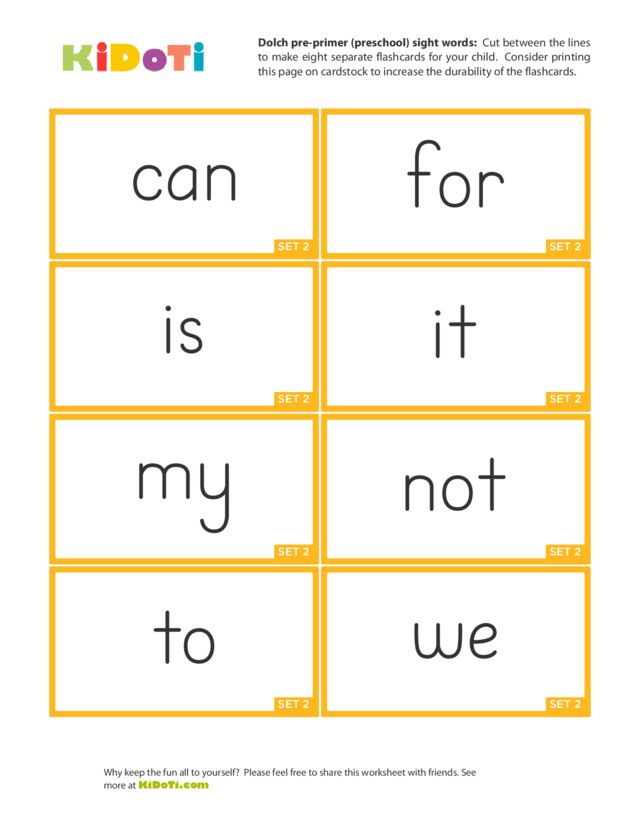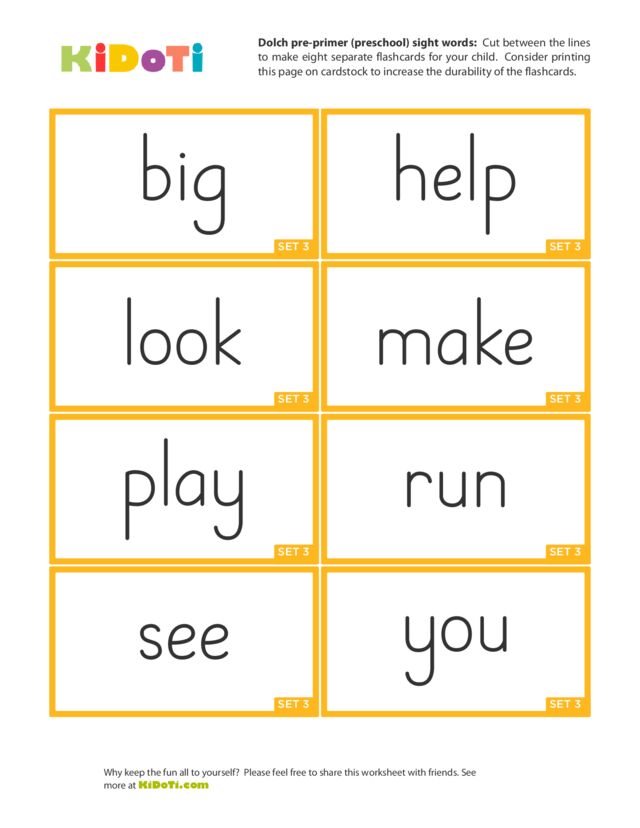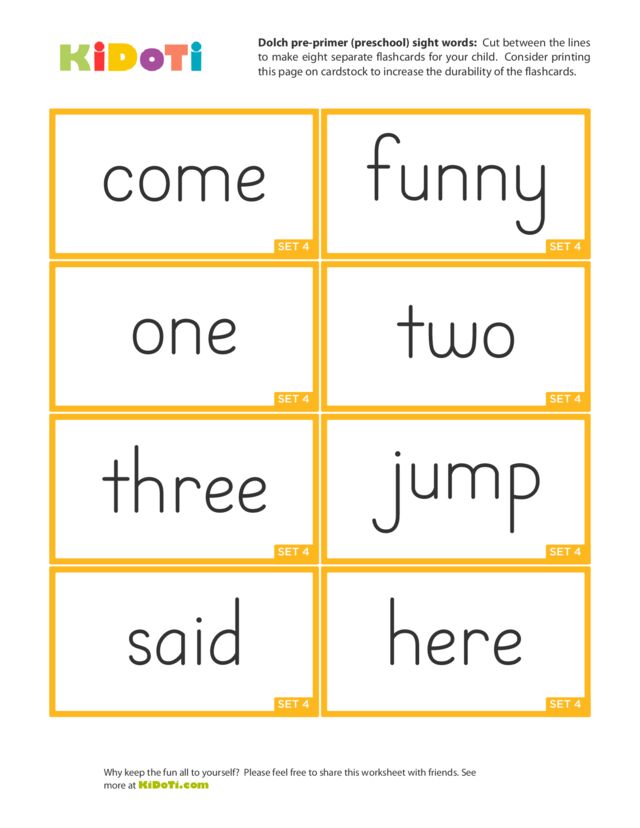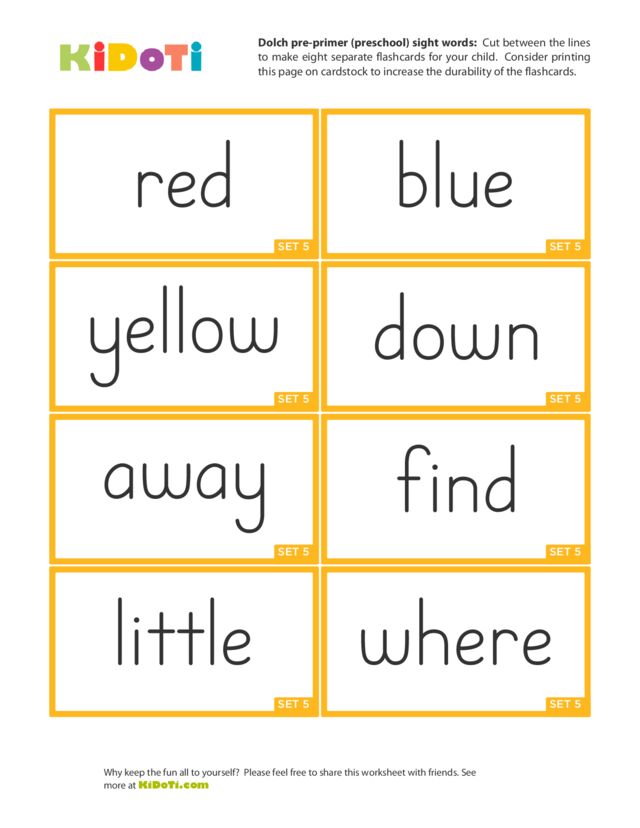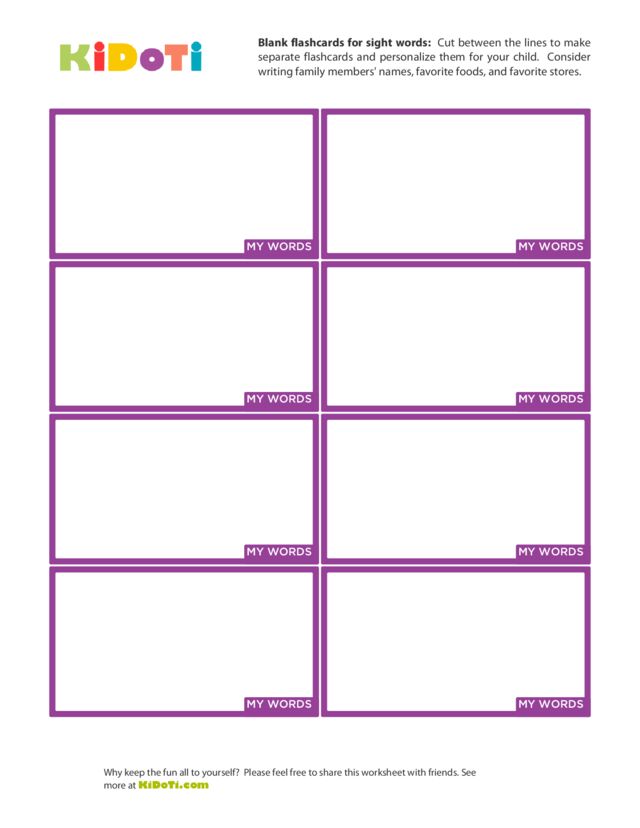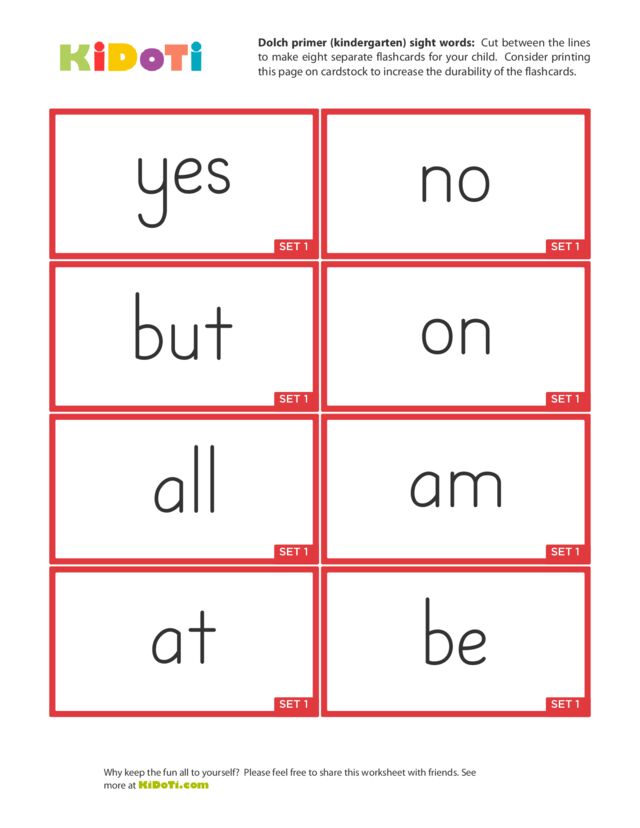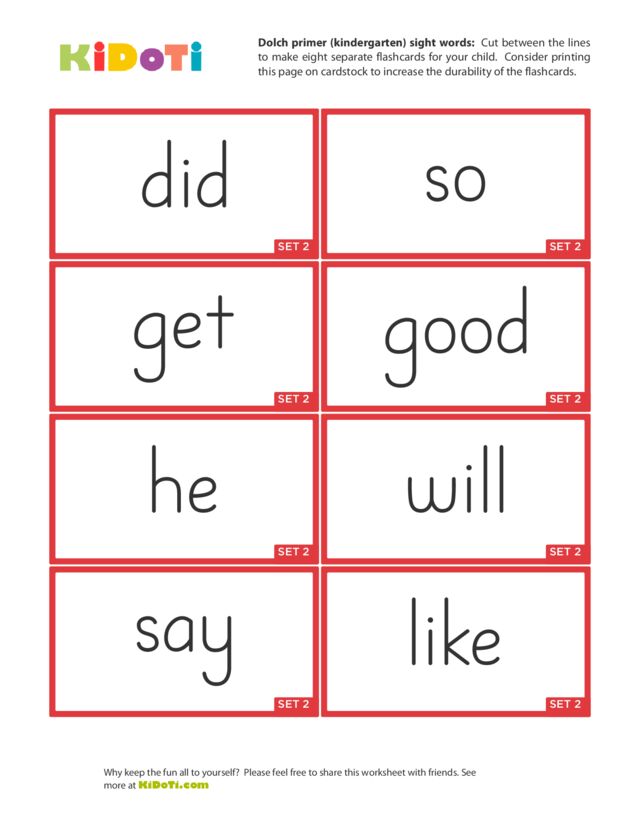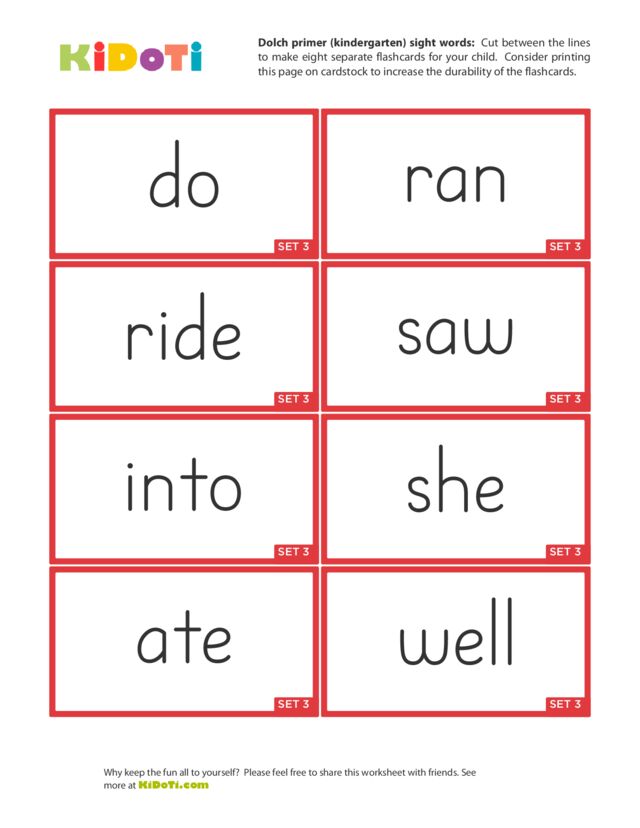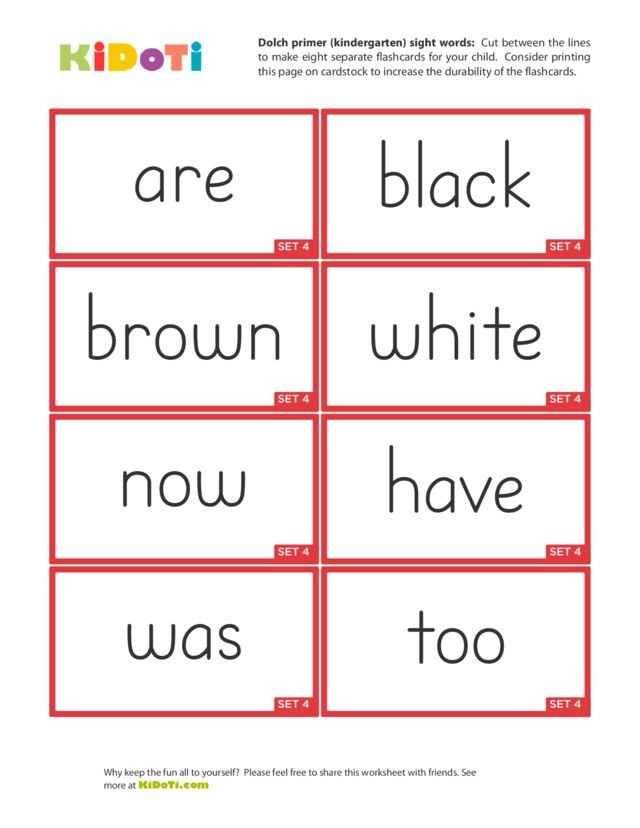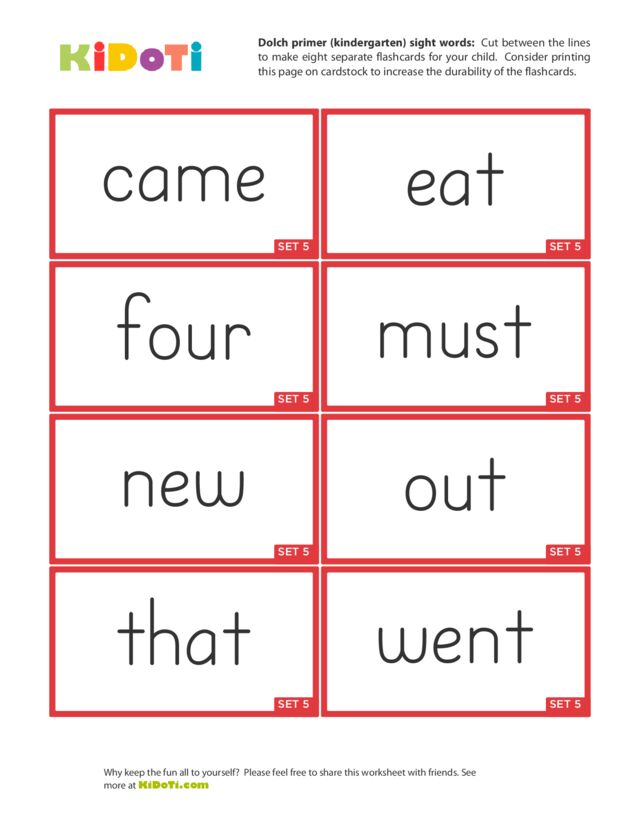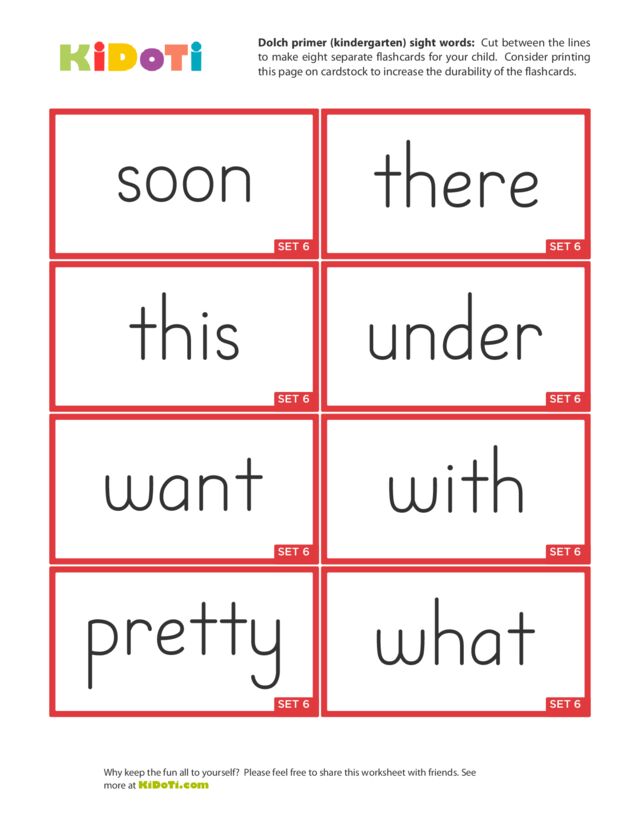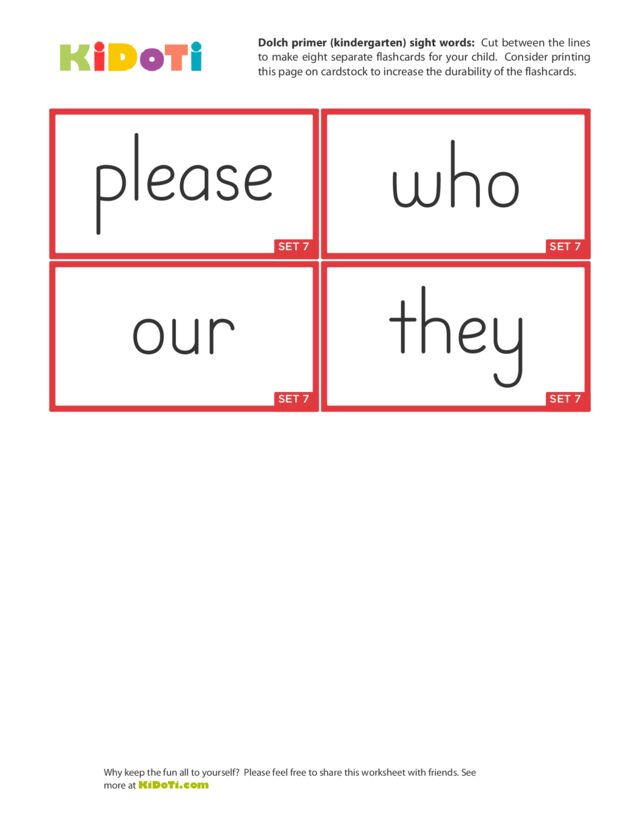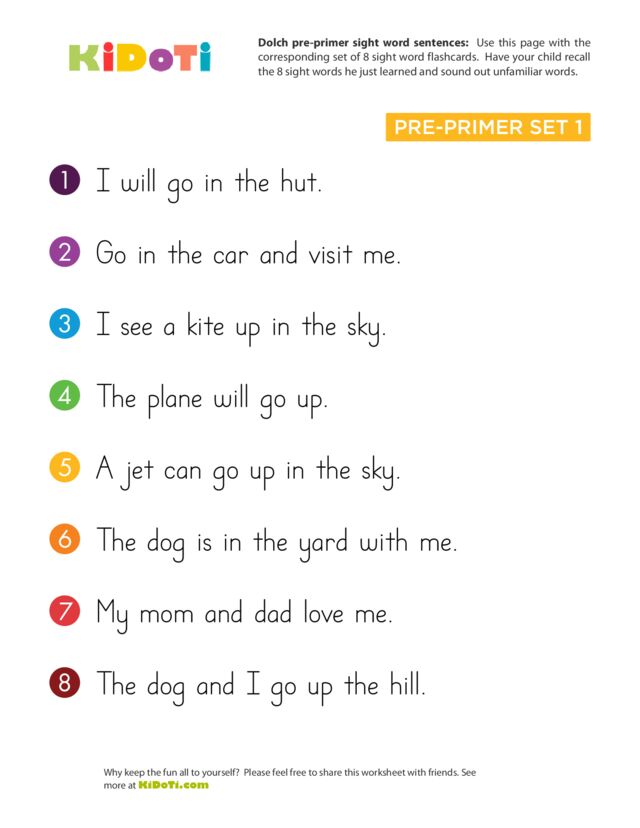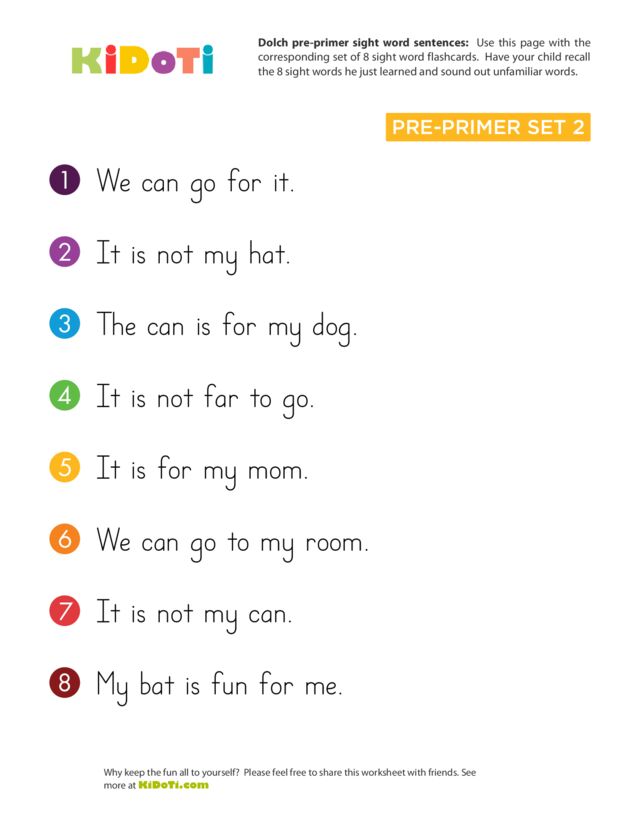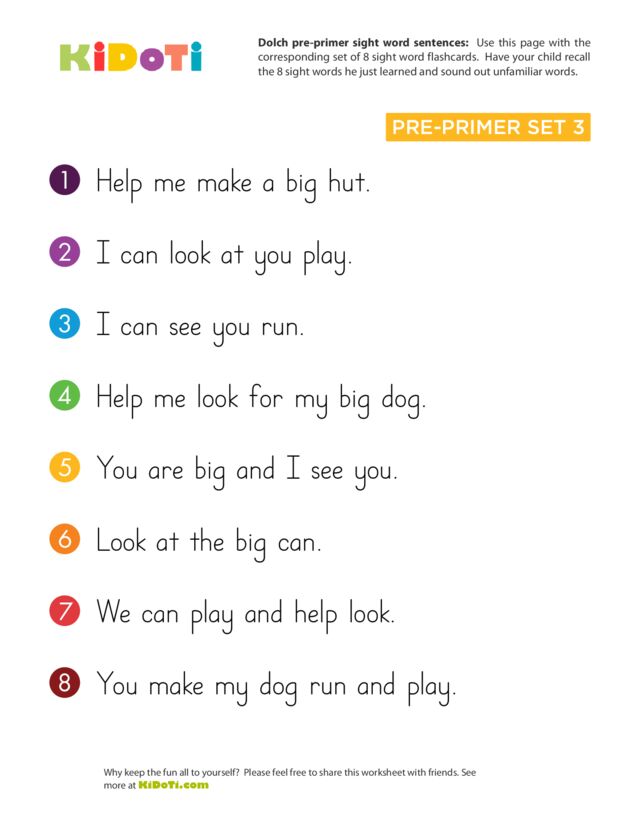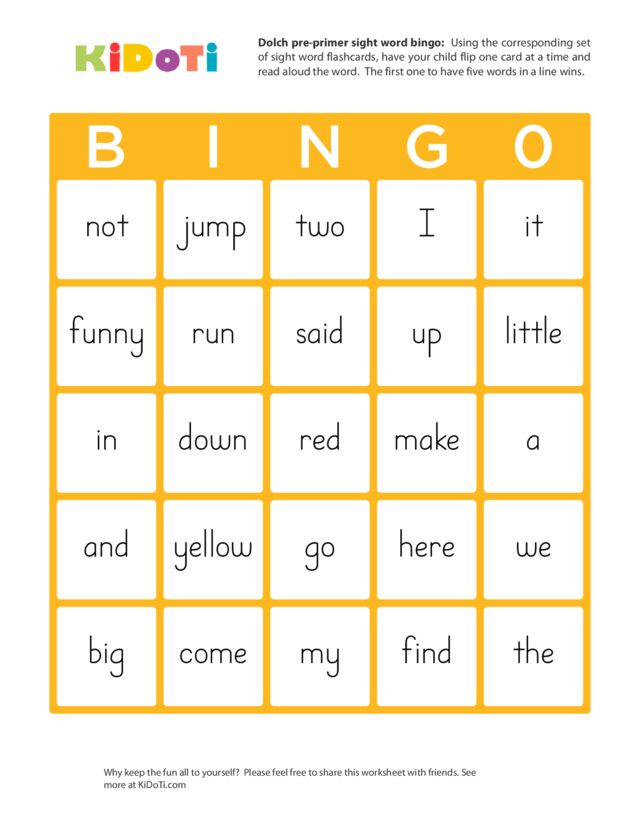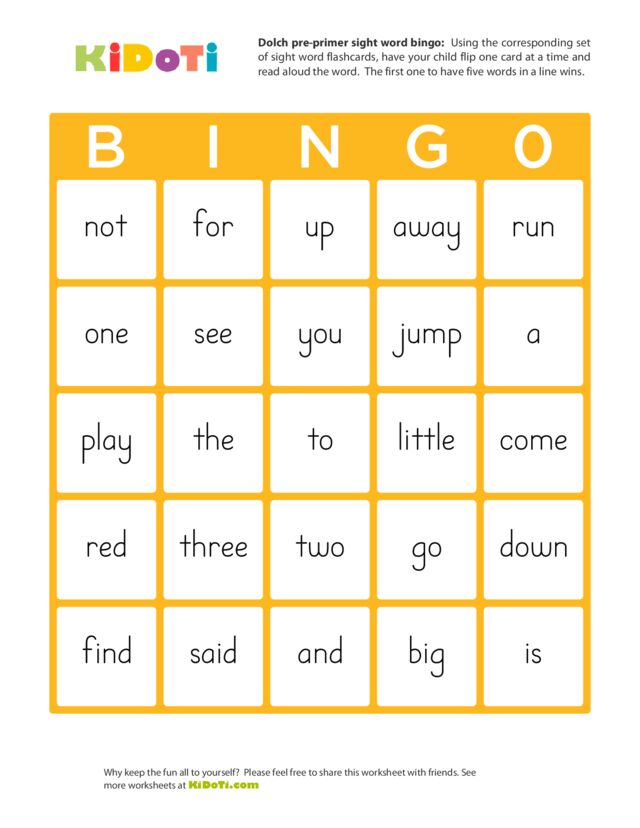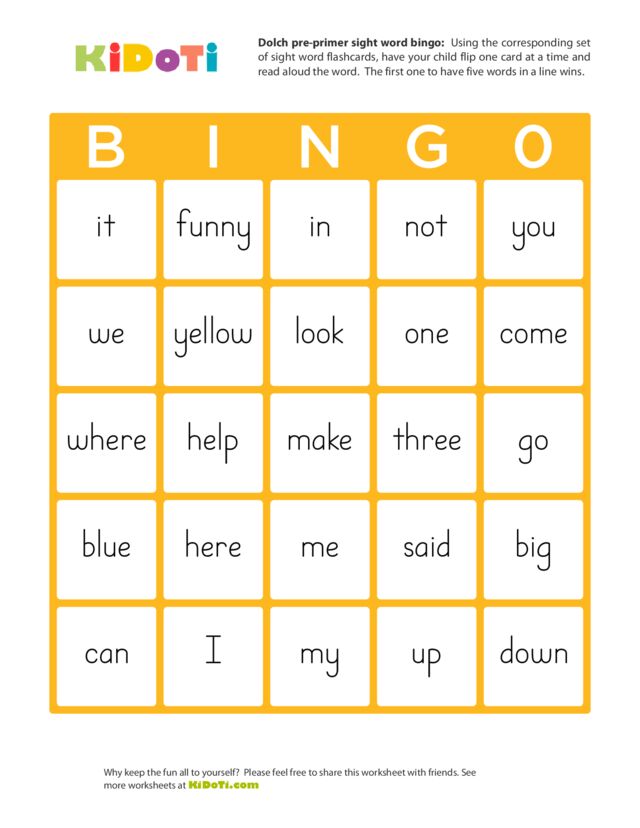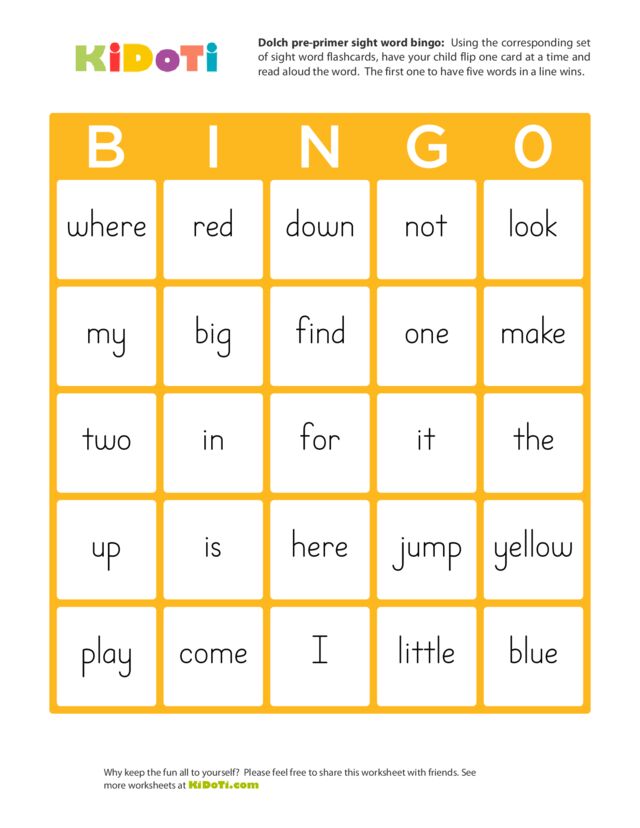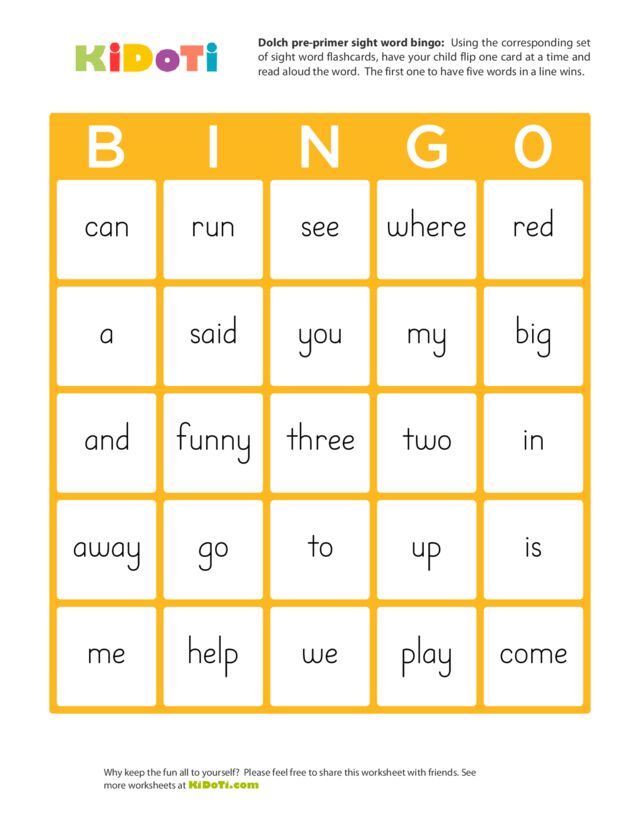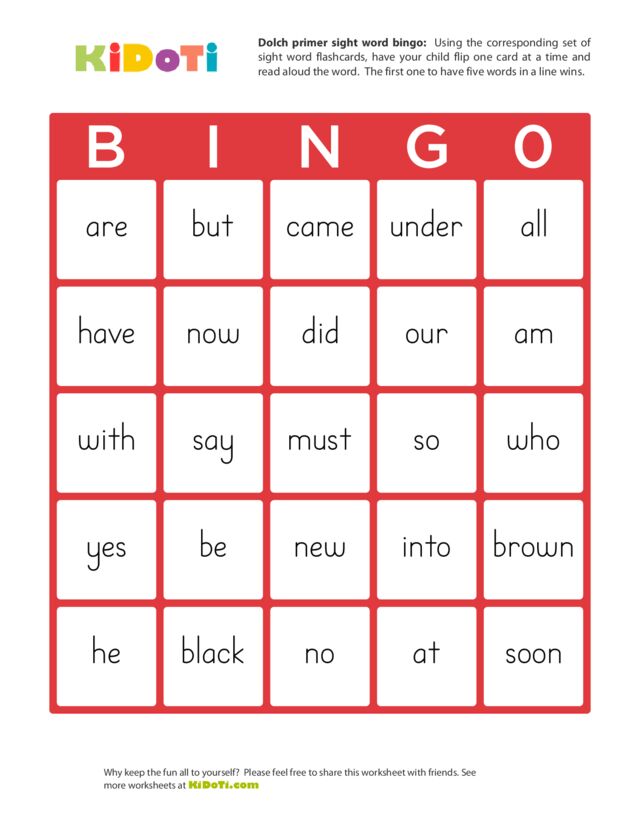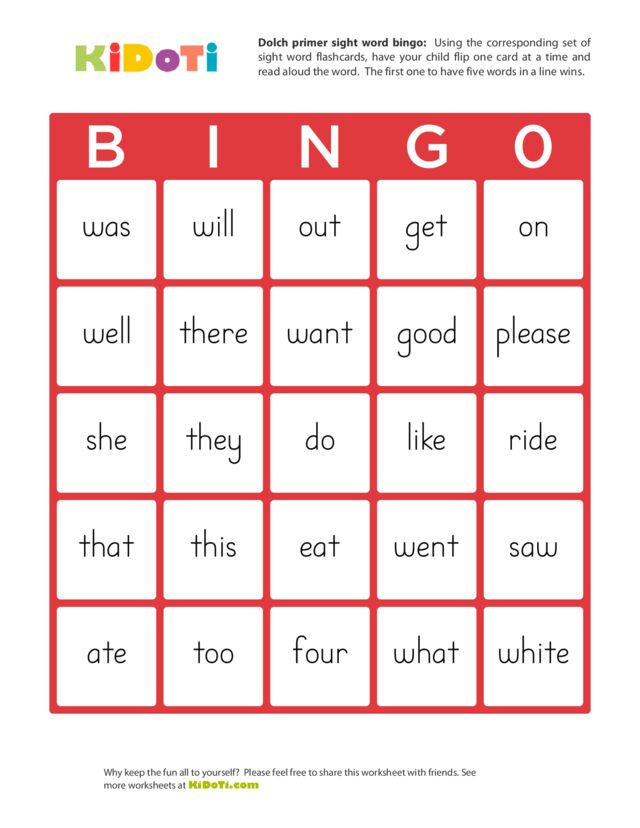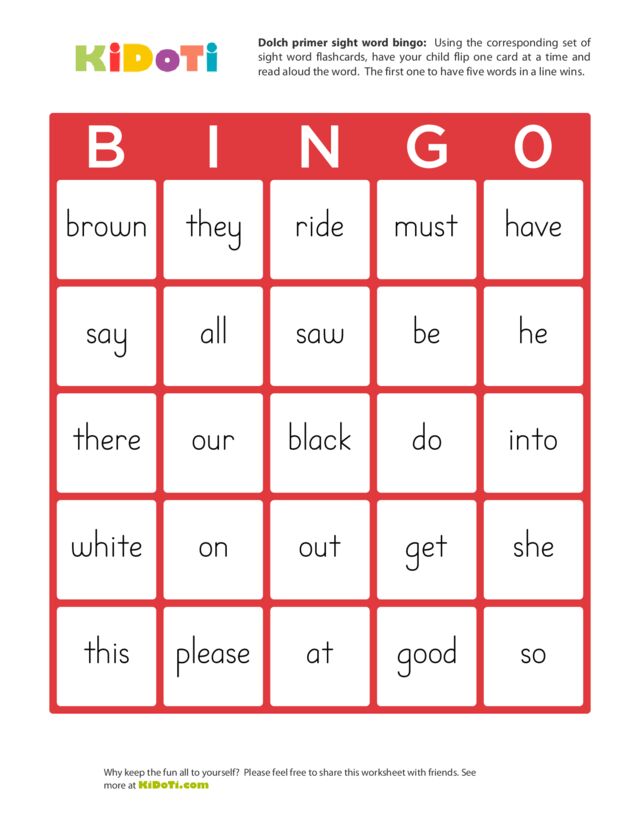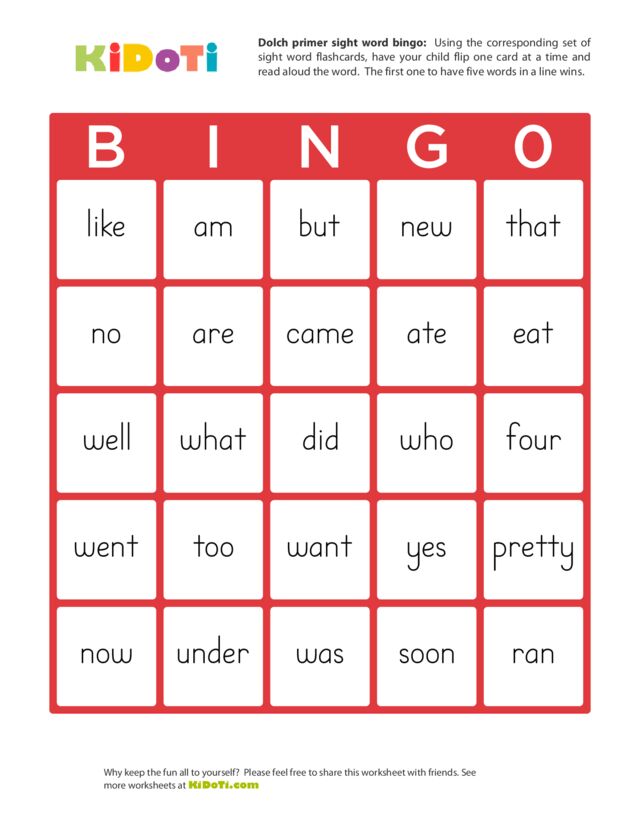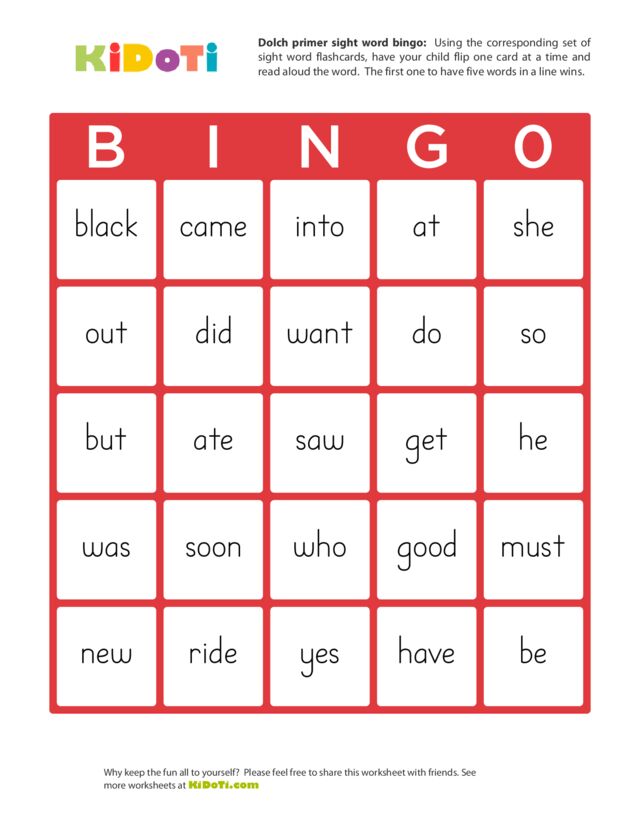Sight words are words that appear frequently in written text or words that do not follow the rules of phonics so can be difficult for a child to “sound out.” By learning to identify these words on sight, children are able to read quickly and comfortably. The following worksheets are meant to be cut into eight separate sight word flash cards and include all preschool sight words (pre-primer) and kindergarten sight words (primer) on the Dolch sight word list. The sight words on these worksheets progress in difficulty from the first page to the twelfth page.
Dolch sight words flashcards
Dolch Sight Word Sentences
Sight Words Game – Bingo
Dolch sight words
Sight words are just what the name suggests; they are words that children commit to memory so that they can read them “on sight” and do not have to decode or sound them out. These words are also words that are used very frequently in typical text for young readers, so knowing them on sight helps children read more smoothly and effortlessly. Dolch sight words are on a specific list of sight words created in 1936 by Edward Dolch, who identified them as key “service” words that young children should be able to read quickly.
The Dolch sight word list
The Dolch sight word list is a list of 220 sight words for children ages preschool through third grade, plus a list of 95 nouns:
- (Pre-primer) Preschool sight words: a, and, away, big, blue, can, come, down, find, for, funny, go, help, here, I, in, is, it, jump, little, look, make, me, my, not, one, play, red, run, said, see, the, three, to, two, up, we, where, yellow, you
- (Primer) Kindergarten sight words: all, am, are, at, ate, be, black, brown, but, came, did, do, eat, four, get, good, have, he, into, like, must, new, no, now, on, our, out, please, pretty, ran, ride, saw, say, she, so, soon, that, there, they, this, too, under, want, was, well, went, what, white, who, will, with, yes
- 1st Grade sight words: after, again, an, any, as, ask, by, could, every, fly, from, give, giving, had, has, her, him, his, how, just, know, let, live, may, of, old, once, open, over, put, round, some, stop, take, thank, them, then, think, walk, were, when
- 2nd Grade sight words: always, around, because, been, before, best, both, buy, call, cold, does, don’t, fast, first, five, found, gave, goes, green, its, made, many, off, or, pull, read, right, sing, sit, sleep, tell, their, these, those, upon, us, use, very, wash, which, why, wish, work, would, write, your
- 3rd Grade sight words: about, better, bring, carry, clean, cut, done, draw, drink, eight, fall, far, full, got, grow, hold, hot, hurt, if, keep, kind, laugh, light, long, much, myself, never, only, own, pick, seven, shall, show, six, small, start, ten, today, together, try, warm
Additional thoughts about kindergarten sight words
The list of Dolch sight words includes a list of (pre-primer) preschool sight words and (primer) kindergarten sight words. In my experience, once children are ready to learn sight words, there is no reason to distinguish between preschool sight words, kindergarten sight words, or first grade sight words, for example. Children who are ready and able to learn what words look like and recall the word on sight are, generally speaking, able to do this for any word to which they are introduced.
The first Dolch sight words flash cards I added to this page were the preschool sight words and the kindergarten sight words. I believe these two groups, combined, are suitable for kindergarten-aged children to learn. Once these lists are mastered, children can progress to learning the other, more challenging, sight word lists.
Tips for using Dolch sight words flash cards
Begin with a group of three sight word flash cards. Showing your child a large group of unknown words can be overwhelming and beginning with a smaller group of sight words will help boost his confidence. Show your child each sight word flash card, read the word on the flash card and then ask him to point to the flash card and repeat the word. Once your child has repeated the word on the first sight word flash card, move that card aside and repeat the process with the second and third sight words.
When your child is familiar with the three sight words and can identify them when you rotate through the cards, test his memory by putting all three sight word flash cards face down in front of your child. Ask him to pick a card and read it. Mix the cards up (or let him mix them) to keep the game interesting. When your child can randomly pick up a sight word flash card and read the word on it, he has committed that sight word to memory.
Once your child has learned all three sight words in the original batch, introduce three new sight words following the same procedure. Once your child is familiar with those new sight words, you can add the new sight words with the ones your child has previously learned and test his memory by having him randomly select flash cards from this larger pile.
As your child learns new sight words, consider collecting the cards on a small loose-leaf ring. This makes it easy to quickly quiz your child at any free moment by turning to a card on the ring and asking your child to read it. Your child can even carry the ring with him to practice reading the words.
Using sight word sentences
The sight word sentences provide lots of practice reading sight words. Once your child has learned a batch of sight words, you can introduce him to the sight word sentences that coordinate with the sight words he just learned. He will delight in being able to read full sentences and this will bolster his confidence as he begins to view himself as a successful reader.
If seeing eight sentences on the page is a bit overwhelming for your child (which it may be if he is new to playing sight word games), fold the paper to reveal one sentence at a time. Or use sheets of blank white paper to cover other sentences on the page and expose just one sentence.
As your child reads each sentence, encourage him to move his pointer finger below each word as he reads to help his eyes focus on the words. As his reading becomes more fluent, his finger can move quickly and smoothly under the words he reads.
More sight word activities and sight word games to try at home
- Flip through the pages of some children’s books and challenge your child to find and read as many sight words on each page as he can. He will not need to read the entire sentence for this game, since he is just acting as a “sight word detective.” Make this game more fun by counting the words he reads on each page, or see which book he can pull off his shelf has the most sight words inside it.
- Hide the Dolch sight words flash cards throughout the house and ask your child to search for the cards. Each time he finds a flashcard, challenge him to read aloud the word on the card to announce that he found it.
- At bedtime, take turns reading to one another. First you may read a picture book to your child and then he can be the one to read his sight words to you. Bedtime is a great time to practice with Dolch sight words flash cards since your child will most likely be eager to read at this time because it buys him some extra “stay up time” at the end of the day.
